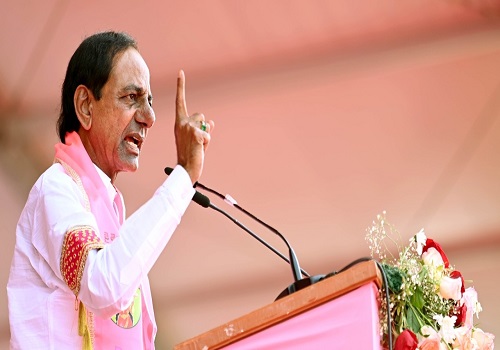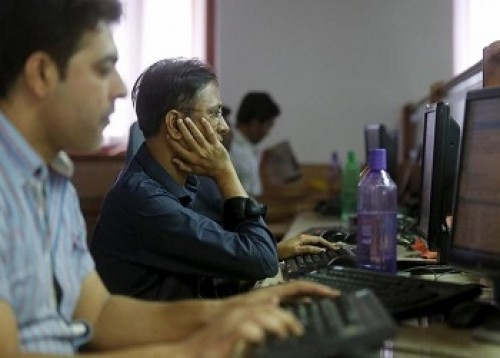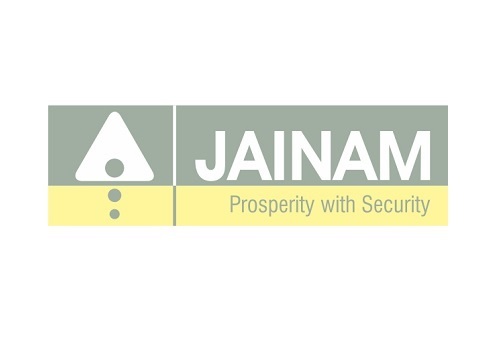Markets snap 4-day losing run; Nifty ends above 16,450 mark
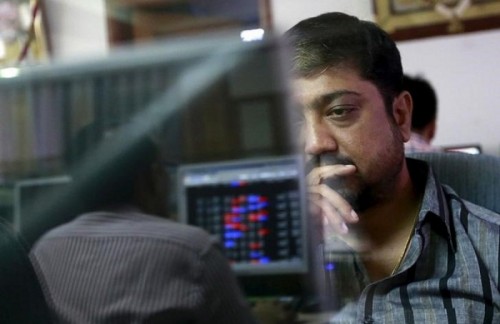
Follow us Now on Telegram ! Get daily 10 - 12 important updates on Business, Finance and Investment. Join our Telegram Channel
Snapping their four-day losing run, Indian equity benchmarks ended higher by over half percent, led by gains in Telecom, Energy and Oil & Gas stocks. Indices made a weak start and remained volatile for most part of the day, as investors were worried that aggressive policy tightening by central banks could stifle global economic growth. Traders also were concerned as the Organization for Economic Cooperation and Development (OECD) pegged India’s FY23 economic growth at 6.9 per cent, the lowest by a major bank or institution, saying the country had been adversely affected by Russia’s invasion of Ukraine. Some weakness also prevailed in the markets as foreign institutional investors (FIIs) have net sold Rs 2,484.25 crore worth of shares on June 8, as per provisional data available on the NSE. Adding to the pessimism, India's daily COVID-19 cases rose further, with government data released on Thursday showing daily cases rose 7,240 in the last 24 hours, the highest since March 2.
However, in the noon trade, the indices made smart recovery, taking support from Chief Economic Advisor (CEA) Anantha Nageswaran’s statement that the impact of structural reforms, like Goods and Services Tax (GST) and Insolvency and Bankruptcy Code (IBC), will help boost India's growth once the cloud of the pandemic and geopolitical conflict recedes. Some support also came as the commerce ministry stated that the country’s exports increased 24.18 per cent to $9.39 billion during June 1-7, 2022 on account of healthy growth in sectors like engineering, gems and jewellery and petroleum products. The exports during June 1-7, 2021 stood at $7.56 billion. Some optimism also came after India Meteorological Department said the monsoon is progressing normally and will likely reach Maharashtra in the next two days.
On the global front, Asian markets settled mostly lower on Thursday, amid renewed worries about rising inflation, slowing growth and the outlook for interest rates. The downward revisions in global growth forecasts for the current year and 2023 by the World Bank and the Organization for Economic Cooperation and Development weighed as well. European markets were trading lower as investors waited for cues from the European Central Bank (ECB) meeting later in the day and Friday's U.S. consumer inflation report. The ECB is all set to bring an end to the bank's asset purchase program and signal rate hikes starting in July to combat rising inflation. The White House has said it expects U.S. inflation to be 'elevated'.
Finally, the BSE Sensex rose 427.79 points or 0.78% to 55,320.28 and the CNX Nifty was up by 121.85 points or 0.74% to 16,478.10.
The BSE Sensex touched high and low of 55,366.84 and 54,507.41, respectively. There were 20 stocks advancing against 10 stocks declining on the index.
The broader indices ended in green; the BSE Mid cap index rose 0.46%, while Small cap index was up by 0.24%.
The top gaining sectoral indices on the BSE were Telecom up by 2.10%, Energy up by 2.03%, Oil & Gas up by 1.78%, Healthcare up by 1.01% and TECK up by 0.99%, while Metal down by 1.66%, Basic Materials down by 0.75% were the top losing indices on BSE.
The top gainers on the Sensex were Dr. Reddy's Lab up by 3.00%, Reliance Industries up by 2.73%, Bharti Airtel up by 2.01%, Sun Pharma up by 1.36% and Tech Mahindra up by 1.31%. On the flip side, Tata Steel down by 3.81%, NTPC down by 1.18%, Ultratech Cement down by 0.93%, Bajaj Finance down by 0.91% and SBI down by 0.89% were the top losers.
Meanwhile, Reserve Bank of India (RBI) Governor Shaktikanta Das has said India’s current account deficit (CAD) will remain at a sustainable level and the normal flows will help RBI to finance it. The country’s current account deficit increased to USD 23 billion, or 2.7 per cent of GDP, in the third quarter of FY 2021-22 from USD 9.9 billion or 1.3 per cent of GDP in the second quarter and USD 2.2 billion (0.3 per cent of GDP) in Q3 of fiscal 2020-21.
The widening of CAD in Q3 FY22 was mainly on account of higher trade deficit. He said there has been a rise in exports and imports. He stated higher exports are the good signs of the economy. Higher imports also augur well and it means that there is capital expenditure and investment which is taking place or is going to take place.
Further, talking about the Indian economy, he said the country is well placed to deal with the challenges emanating from the geopolitical developments. He noted that the recovery is gaining traction and it is reflected in the fact that capacity utilisation has improved. Disbursal of bank credit is also picking up. Rural and urban demand are showing signs of further improvement. Overall macroeconomic numbers broadly look alright.
The CNX Nifty traded in a range of 16,492.80 and 16,243.85. There were 38 stocks advancing against 12 stocks declining on the index.
The top gainers on Nifty were Dr. Reddy's Lab up by 3.00%, BPCL up by 2.81%, Reliance Industries up by 2.64%, Eicher Motors up by 2.63% and Bajaj Auto up by 2.12%. On the flip side, Tata Steel down by 4.18%, Shree Cement down by 1.96%, Grasim Industries down by 1.60%, Tata Motors down by 1.56% and NTPC down by 1.05% were the top losers.
European markets were trading lower; UK’s FTSE 100 decreased 25.08 points or 0.33% to 7,567.92, France’s CAC decreased 3.76 points or 0.06% to 6,444.87 and Germany’s DAX decreased 69.29 points or 0.48% to 14,376.70.
Asian markets settled mostly lower on Thursday tracking weakness in Wall Street overnight amid prospects of tighter policy measures by the US Federal Reserve. Moreover, worries over stagflation added pressure on market sentiments. Meanwhile, investors were cautiously awaiting cues from the European Central Bank meeting later in the day and Friday's US consumer inflation report. Chinese shares declined on profit booking as parts of Shanghai began imposing new Covid-19 lockdown restrictions. However, Japanese shares ended almost flat with positive momentum as a weakening yen buoyed shares of exporters.
Above views are of the author and not of the website kindly read disclaimer


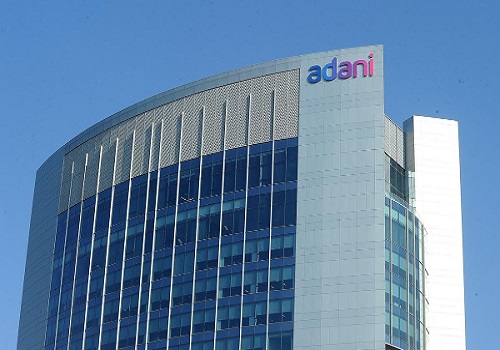

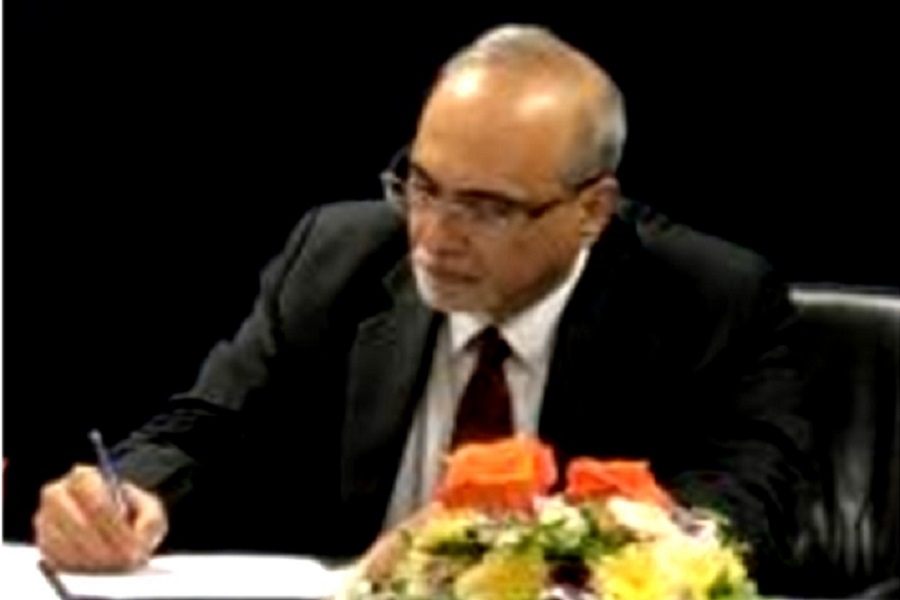


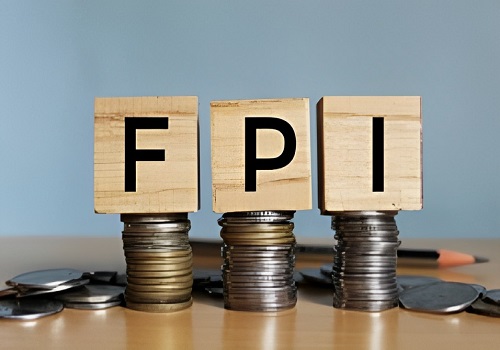
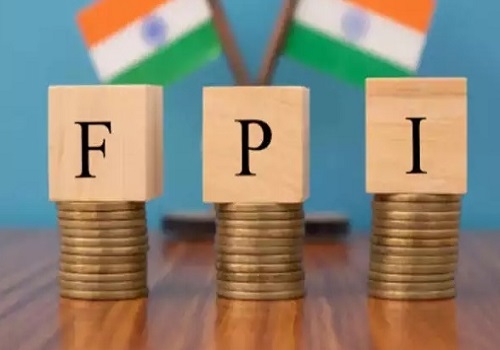

Tag News

Weekly Market Analysis : Markets strengthened recovery and gained nearly 2% in the passing w...








